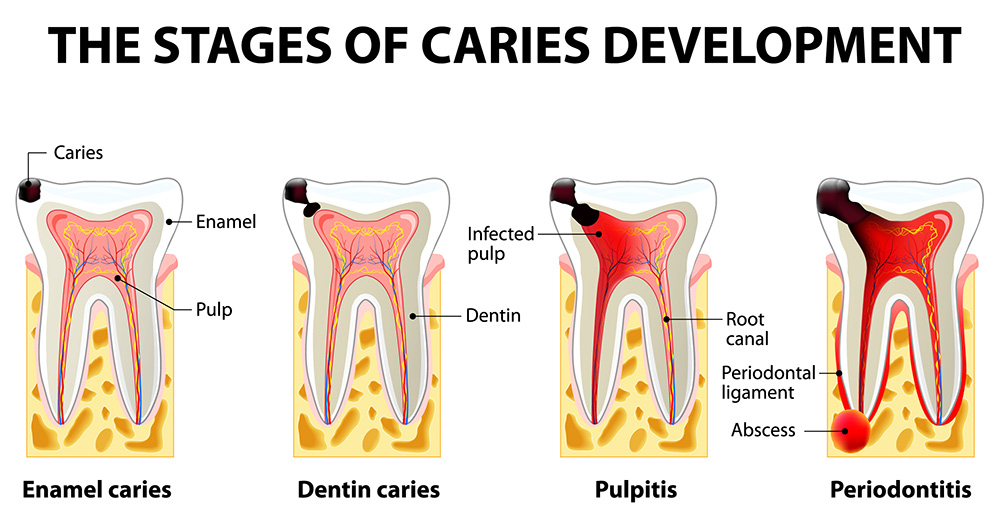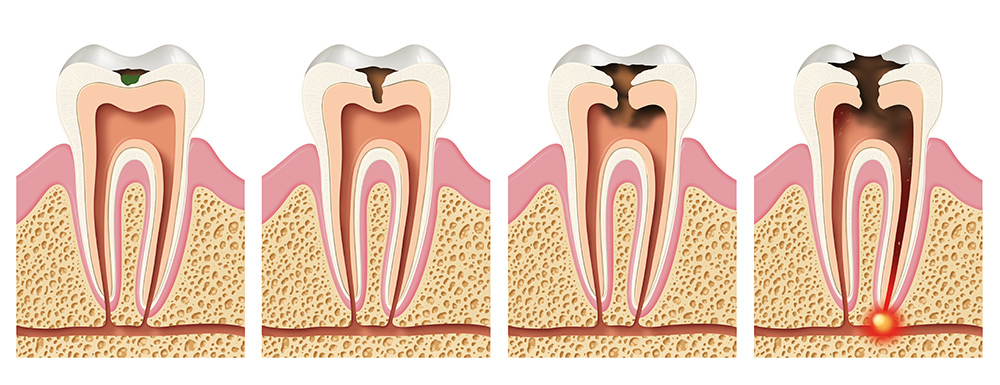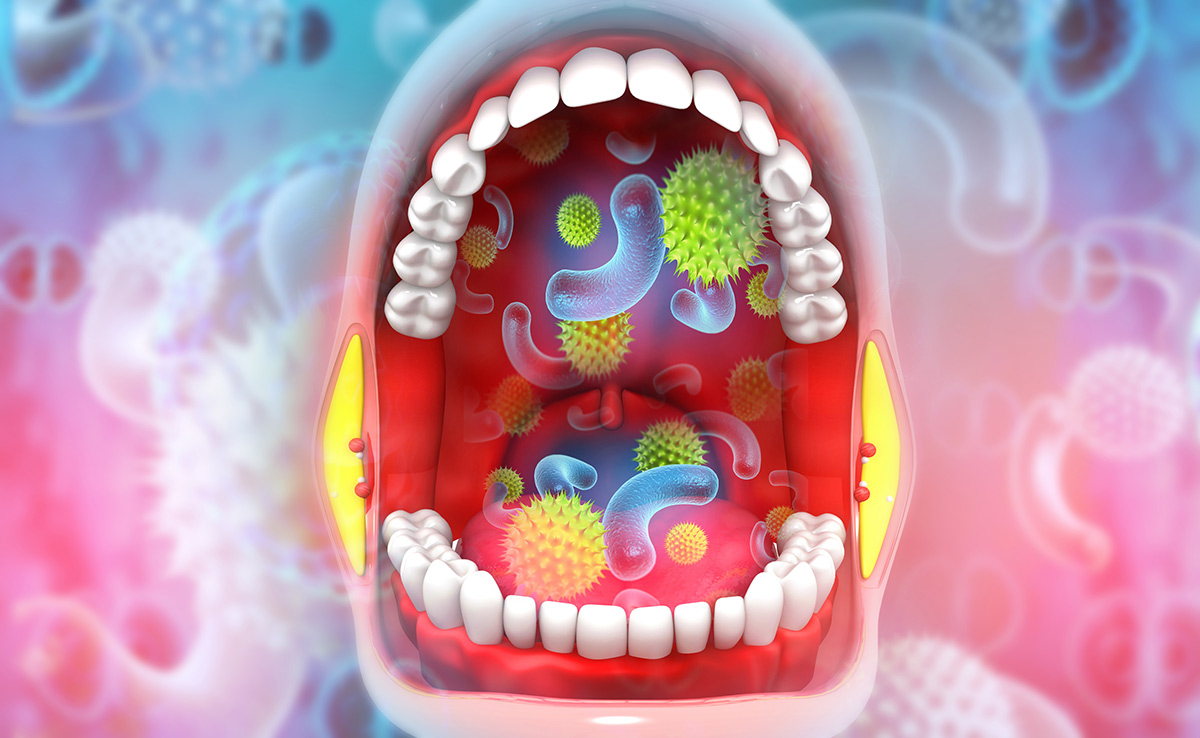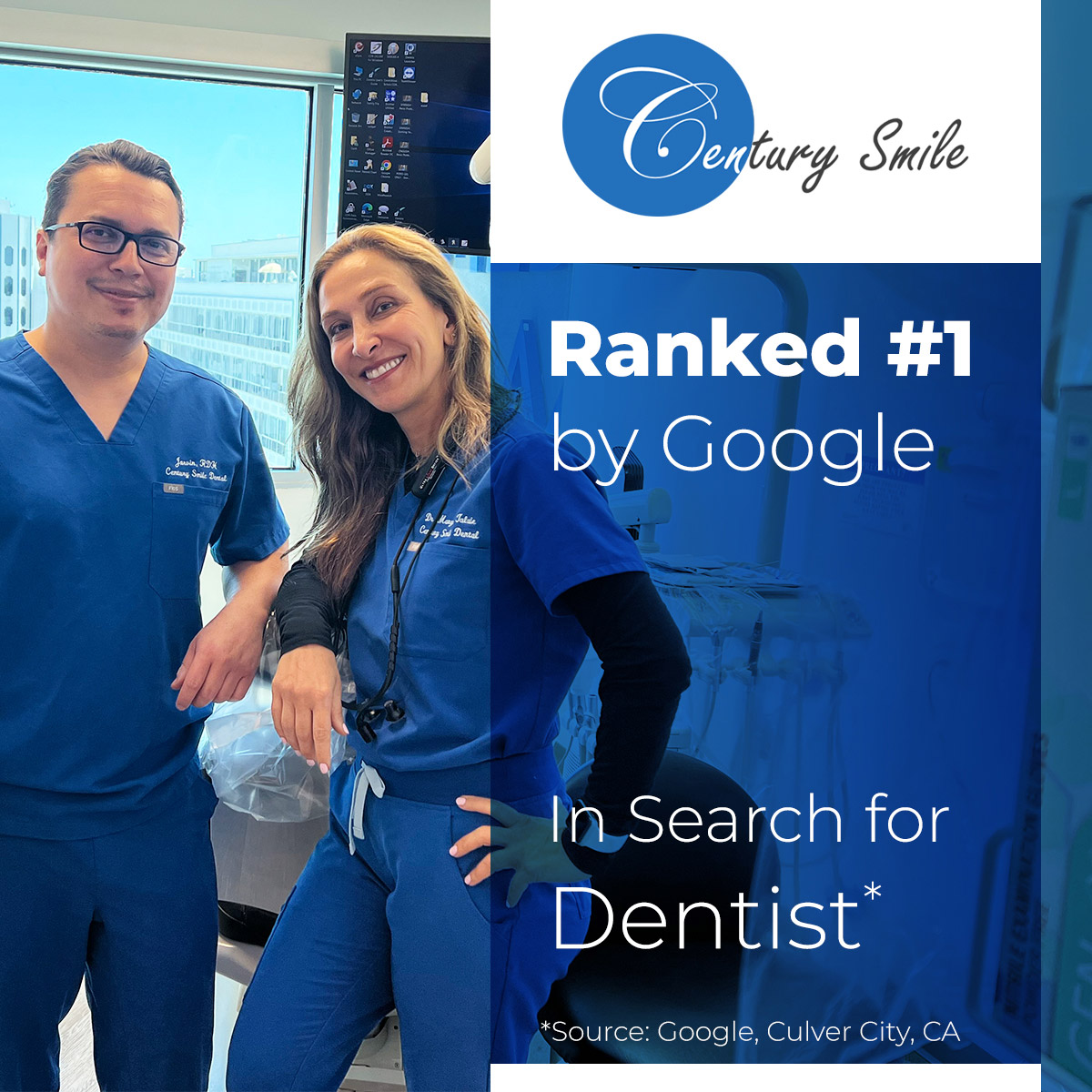What Are Dental Caries?

In dental caries, holes can form in the tooth due to bacteria encrusting the surface. Dentists commonly refer to them as cavities or tooth decay. This dental ailment is prevalent in the United States, with around 90% of adults having a cavity at least once in their life, according to the Centers for Disease Control and Prevention (CDC). Although they are widespread, they are also one of the most preventable and treatable dental issues. Despite this, do not underestimate the pain caused by cavities, as they can cause infection and even tooth loss if left unattended.
What Are The Different Types of Dental Caries

The following list is arranged from least to most aggressive in terms of tooth decay.
Incipient
There is only a halfway penetration of enamel by incipient lesions.
Moderate
In moderate lesions, the enamel is penetrated, but the dentin is not exposed.
Advanced
When a lesion reaches the advanced stage, it penetrates a significant amount of enamel, dentin, and the center of the pulp.
Severe
Tooth loss is possible during this stage, and pain is most likely to occur. In this case, the entire tooth has decayed.
What Causes Dental Caries?
A variety of factors can cause dental caries. As a result, it is important to keep up with your dental cleanings and discuss these issues with your dentist.

How To Prevent Dental Caries

Brushing your teeth twice daily with fluoride-containing toothpaste for 2 minutes is the easiest and most effective way to prevent dental caries. In addition, an excellent flossing routine will remove any food or gunk stuck in hard-to-reach areas.
Can Dental Caries Be Cured?

It may be possible if the decay is in the early stages. Getting your enamel restored may be possible with fluoride treatments. Nonetheless, if you do not treat dental caries, your gums will suffer pain and infection, leading to further complications. Furthermore, it can interfere with your speech and eating, and the bacteria/infection can travel to other parts of your body, causing additional issues.
Dental Treatments To Fix Dental Caries

The following list is arranged from least to most aggressive in terms of tooth decay.
Fillings
Fillings are used to prevent further decay in a tooth that has a small hole in it. Cavities or dental caries are typically treated with this method at an early stage. The dentist will remove any decayed tissue and fill the cavity with a dental filling.
Root Canals
In cases of severe decay, a root canal is necessary. The dentist or endodontist will drill into the tooth, creating a canal that goes all the way to the root. In the next step, the dentist will clean the canal, removing any decay. After filling the hole, a crown is placed over it.
Crowns
After a filling or root canal procedure, a crown, also called a “cap,” is placed over the existing tooth. As a result, the decaying tooth will no longer decay, preventing infection.
Tooth Extractions
Tooth extractions are the dentist’s last resort when they can no longer save the tooth. Your dentist will pull the tooth and tooth root out to stop any infection from spreading to another tooth and other parts of the mouth and body. This is for a more severe case of cavities or dental caries.
See our Comprehensive Guides on Dental Exams and Teeth Cleaning
Our guide on Teeth Cleaning Guide covers:




0 comments on “What Are Dental Caries?”